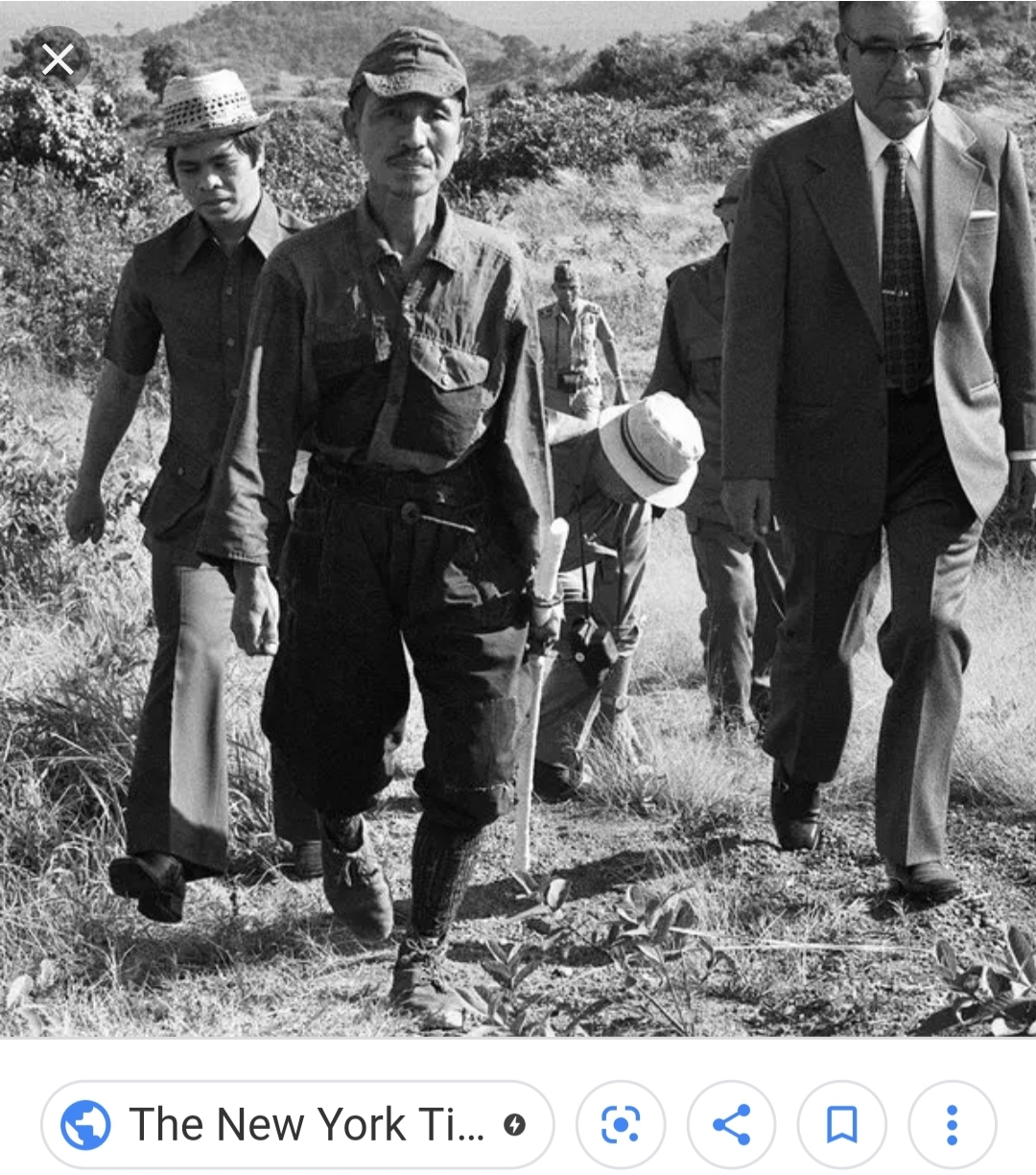
144) Hiroo Onoda
Japanese Soldier During World War II who Refused to Surrender Until 1974
Born: 19 March 1922, Wakayama, Japan
Died: 16 January 2014, Tokyo, Japan
Original Name: Hirō Onoda
Refused to surrender isn’t really the right word for it. In actuality, Hiroo had been abandoned in the Jungle for nearly thirty years and had no idea the war had come to an end.
He reportedly survived on barnacles and coconuts, and killed several local villagers he believed to be enemy enforcers.
Once he was found, Hiroo surrendered to the President of the Philippines by offering up his sword. President Marcos returned Hiroo’s sword to him.
His triumphant return to Japan was reminiscent of Neil Armstrong and Buzz Aldrin’s return to the United States after flying to the moon, huge adoring crowds, parades, and the like.
Hiroo’s last order, which came down early in 1945, was to stay and fight on Lubang Island, ninety-three miles from Manila, which meant the other Japanese soldiers who retreated with the coming American Invasion left him behind.
Hiroo and the three other Japanese soldiers stationed on the island with him refused to believe the leaflets air dropped onto the island proclaiming the war’s end. They figured it was just war propaganda.
Its estimated around thirty villagers were killed by Hiroo and his fellow soldiers. They evaded American and Filipino search parties and kept their rifles in working order.
One of the soldiers surrendered in 1950. The two others were shot in 1954 and 1972, but Hiroo persisted.
Hiroo was officially declared dead in 1959, however, a student named Norio Suzuki decided to take up the search and find whatever had happened to Hiroo. In 1974, he found him. Hiroo refused to believe Norio though, and it took a delegation from the Japanese Government, photographs, documentation, Hiroo’s former commander, and his brother to convince him the war was over and to relieve him of duty.
On his return to Japan, doctors found him to be in astonishingly good health. Hiroo was given a military pension and signed a contract for a ghostwritten memoire. However, he did not like the new and industrialized Japan, and in 1975 he move to São Paulo, Brazil to raise cattle. He married the following year.
In 1984, Hiroo and his wife returned to mainland Japan. They founded the Onoda Nature School, which taught kids skills they’d need to survive in the wilderness.
In 1996, Hiroo returned to Lubang and granted a school there $10,000. He was made an honorary citizen of Brazil in 2010.
Badges Earned:
Find a Grave Marked
Sources:

